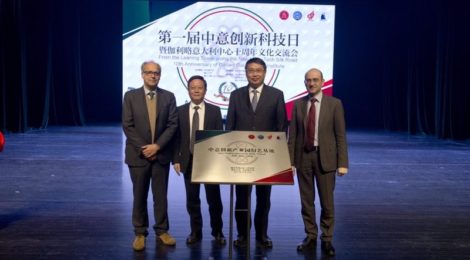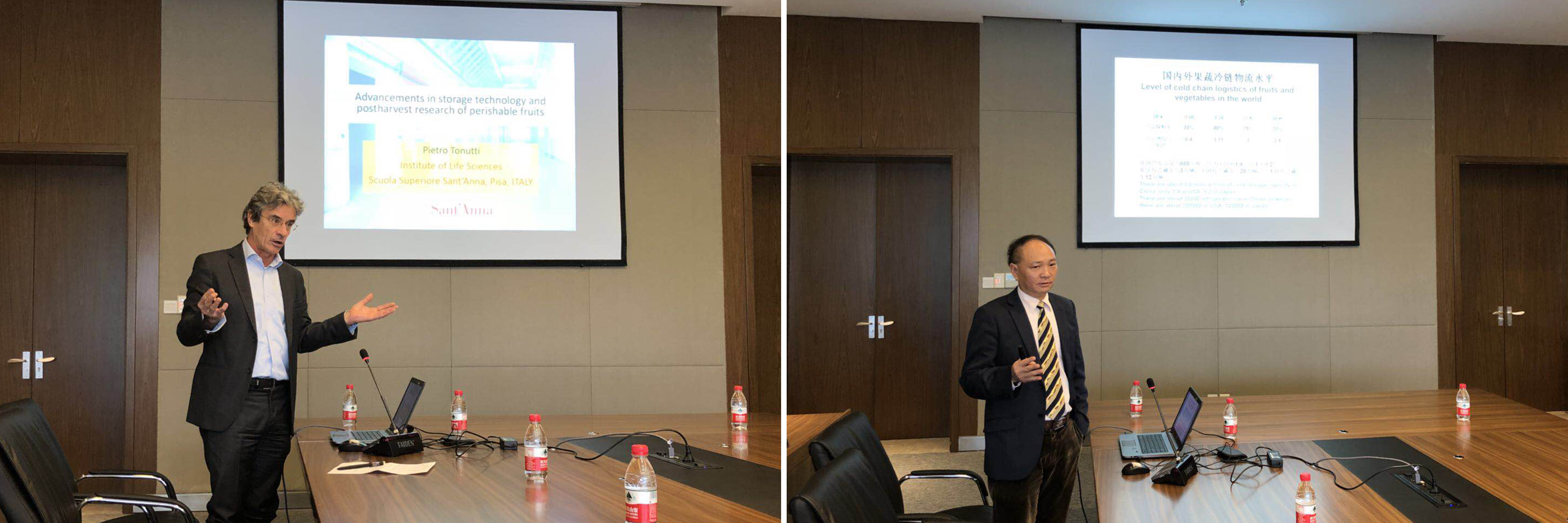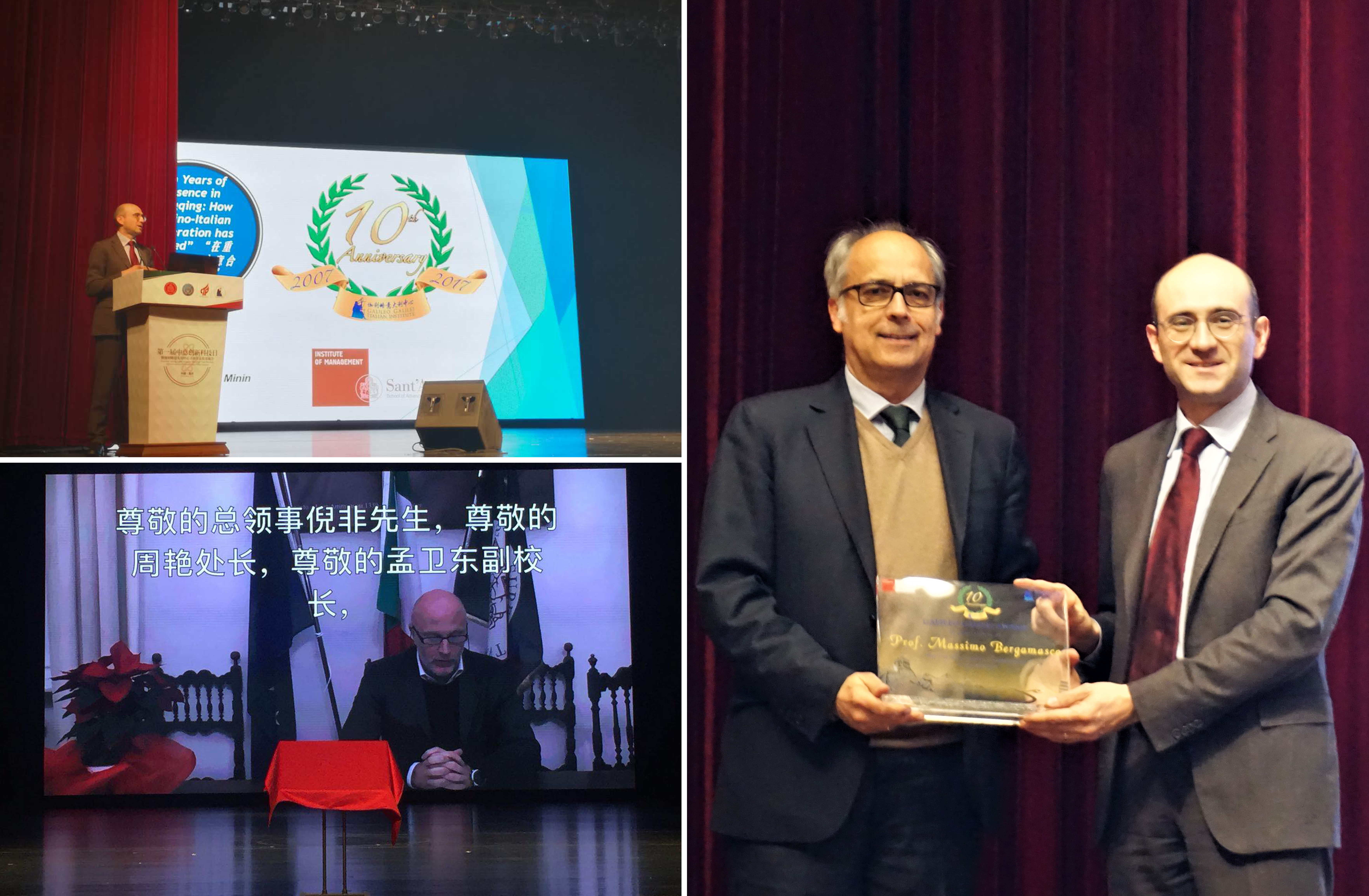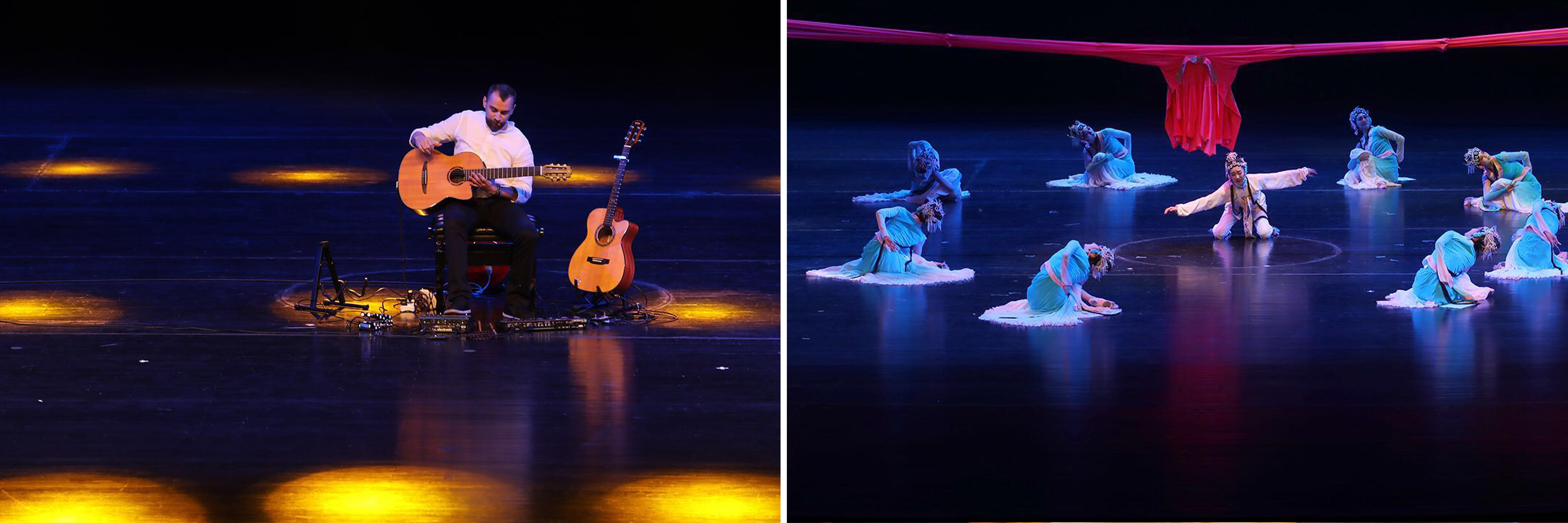
From the Leaning Tower along the New High-Tech Silk Road: 10th Anniversary of the Galileo Galilei Italian Institute
On Sunday December 10, Sant’Anna School of Advanced Studies of Pisa, together with its Chinese partners, Chongqing University (CQU) and the District of Bishan (Chongqing, China), held the first event named “From the Leaning Tower along the New High-Tech Silk Road: 10th Anniversary of the Galileo Galilei Italian Institute”. The organization of the event has been facilitated by the Italian Consulate General in Chongqing, and coordinated by the National High-Tech Zone of Bishan, together with the Sino-Italian Innovation & Research Institute (SIIRI) and the Galileo Galilei Italian Institute (GGII). The venue of the event, the futuristic Culture and Arts Centre in Bishan, is just few kilometres away from the site where the First Joint Research Laboratory on Innovative Virtual Environments, Augmented Reality and Artificial Intelligence will be built.
The event had the purpose of helping to foster the dialogue between Italian and Chinese enterprises interested in joint investment projects to be developed in Bishan, as well as promoting a deeper dialogue between all the academic realities involved. Training programs, Summer Schools, Joint Degrees are just few of the proposed topics discussed among the participants. Chongqing and the surrounding province of Sichuan have a unique and favourable economic growth in China, Chongqing having a registered GDP annual growth of 10.7% in 2016. Within this framework, events such as the one held in Bishan assume an extremely important role in promoting the development of Southwestern China, as well as helping companies already present in the area to expand even further.
The event was inaugurated by few opening speeches by Huang Wenjie, Member of the Bishan District Standing Committee, Lorenzo Gonzo, Scientific Councillor of the Consulate General of Italy in Chongqing (here his interview with CCTV), Zhou Yan, Deputy Director of the Science and Technology Commission of Chongqing Municipality, and Paolo Bazzoni, Board Member of the China-Italy Chamber of Commerce in Chongqing. The speakers remarked the importance of the event and gave some interesting insights on the business and entrepreneurial environment in China’s Southwest.

The institutional session was followed by three round-table meetings, where representatives from Italian and Chinese enterprises gathered together to discuss business and give presentations on multiple case studies from their own experience within and outside China.
The first round-table was on “China-Italy Cooperation for Innovation & Technology Transfer”. Alberto Di Minin, prof of Management at Sant’Anna School of Advanced Studied and Director of the GGII, moderated this first session, during which speakers discussed topics such as the commercialization of advanced technologies through spin-offs, the empowerment of the Sino-European start-ups ecosystem, the new era for artificial intelligence in China, the possible commercial applications of virtual reality and the IPR protection in China.

The second round-table focused on “Italian Design: Best Practices for Cooperation with China”. This session was moderated by Xia Jinjun, prof from the School of Art of CQU, and Federico Drago (GGII). This second session gave some interesting insights on the different topics related to the Sino-Italian industrial design cooperation in China, the possible business strategy for design firms in Asia, and the very sensible topic of sustainable development with Italian characteristics.
The third and last round-table, moderated by Alessandro Zadro (GGII), saw prof Pietro Tonutti, Vice president of Sant’Anna School, and prof Li Zhengguo, Director of the Life Science Department of CQU, giving two short lectures on fields of possible cooperation between the two academic institutions. In particular, the talks focused on the advancements in storage technology and postharvest research of perishable fruits. This last session was concluded by a successful conversation with interested local investors.

Following the lunch break, the host planned a visit to the Bishan National High-Tech Zone. During the visit, our guests had the chance to see the state of works of the main office buildings and sites where local investors are building their enterprises. In particular, our guests paid a visit to the Chongqing branch of Meta System (美达电器), a Chinese company involved in the production of electronic components for cars.
The afternoon session was opened by the institutional speeches by Zhang Yongwu, Mayor of the District of Bishan, Filippo Nicosia, Consul General of the Republic of Italy in Chongqing, Meng Weidong, Vice President of CQU, and Pietro Tonutti, Vice President of Sant’Anna School. Besides highlighting the importance of deepening the Sino-Italian economic and political relations, and promoting the people-to-people exchanges between the two countries, the speakers introduced and discussed the Sino-Italian Innovation Base-Camp (SIIB-C) cooperation project. The SIIB-C project stemmed from the cooperation between Sant’Anna, CQU and Bishan District. The trilateral agreement was signed in February 2017 at the presence of Presidents Sergio Mattarella and Xi Jinping, and aims at the establishment of a centre for developing joint research and education programs, technology transfer and start-ups incubation.

The event went on with the celebration of the 10th Anniversary of the Galileo Galilei Italian Institute in Chongqing. The celebration started with a video message from Pierdomenico Perata, Rector of Sant’Anna School of Advanced Studies. Following prof Perata’s encouraging and gratifying words, prof Di Minin, as Director of the GGII, officially celebrated 10 years of presence of our Institute in Chongqing with a speech on the development of the Sino-Italian relations in the same timeframe. The celebration was concluded by the conferment of the “2017 Galileo Galilei Award” to Massimo Bergamasco, Director of the Institute of Communication, Information and Perception Technology (TeCIP) of Sant’Anna, for his outstanding contribution to the success of our Institute.

The floor was the given to prof Bergamasco who presented the innovative concept of Transformative Basement. This brand-new concept will be at the heart of the International Joint Research Laboratory on Innovative Virtual Environments, Augmented Reality and Artificial Intelligence, whose technologies will be also applied to the field of performing arts.

The event was concluded by an art performance by Italian and Chinese artists.

From left to right: “Italian guitar solo” held by Daniele Defranchis, “Sichuan opera” held by Chongqing University students




